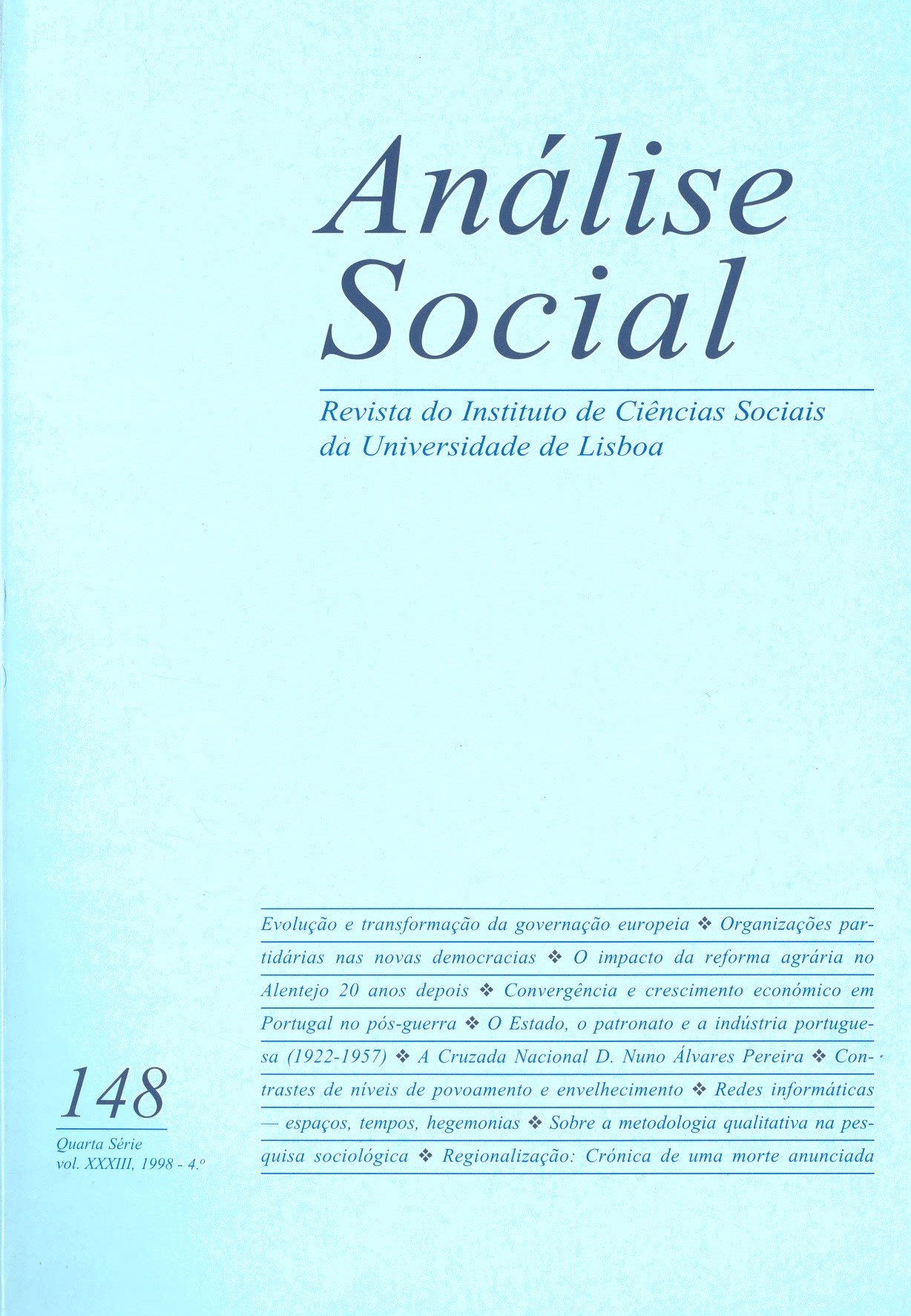Convergence and economic growth in post-war Portugal
DOI:
https://doi.org/10.31447/AS00032573.1998148.04Keywords:
economic growth, 1945-1973, Portuguese economy, convergenceAbstract
This article is a preliminary approach to the study of economic growth in Portugal in the post-war period (1945-1973). The main question asked is: how did the Portuguese economy, which for more or less the whole preceding 100 years did nothing but lose ground to other more developed economies, suddenly manage to embark on a process of rapid economic growth and convergence? The author addresses the question in almost exclusively theoretical terms and the article is based on a critical appreciation of the most recent literature on the convergence hypothesis. It also presents some empirical data on the convergence of the Portuguese economy and, on the basis of the reviewed writings, the author endeavours to put forward hypotheses, which are to be explored in future research, that may help to explain the course of this convergence. The article perfunctorily shows that the greater part of Portuguese economic growth was due to the accumulation of physical and human capital, with a significant contribution also coming from the total productivity of the factors. It also raises questions (to which no definitive answers are given) as to the causes for the behaviour of the growth sources, particularly in reference to the budget and education policies in the New State and to the opening up of the Portuguese economy.



